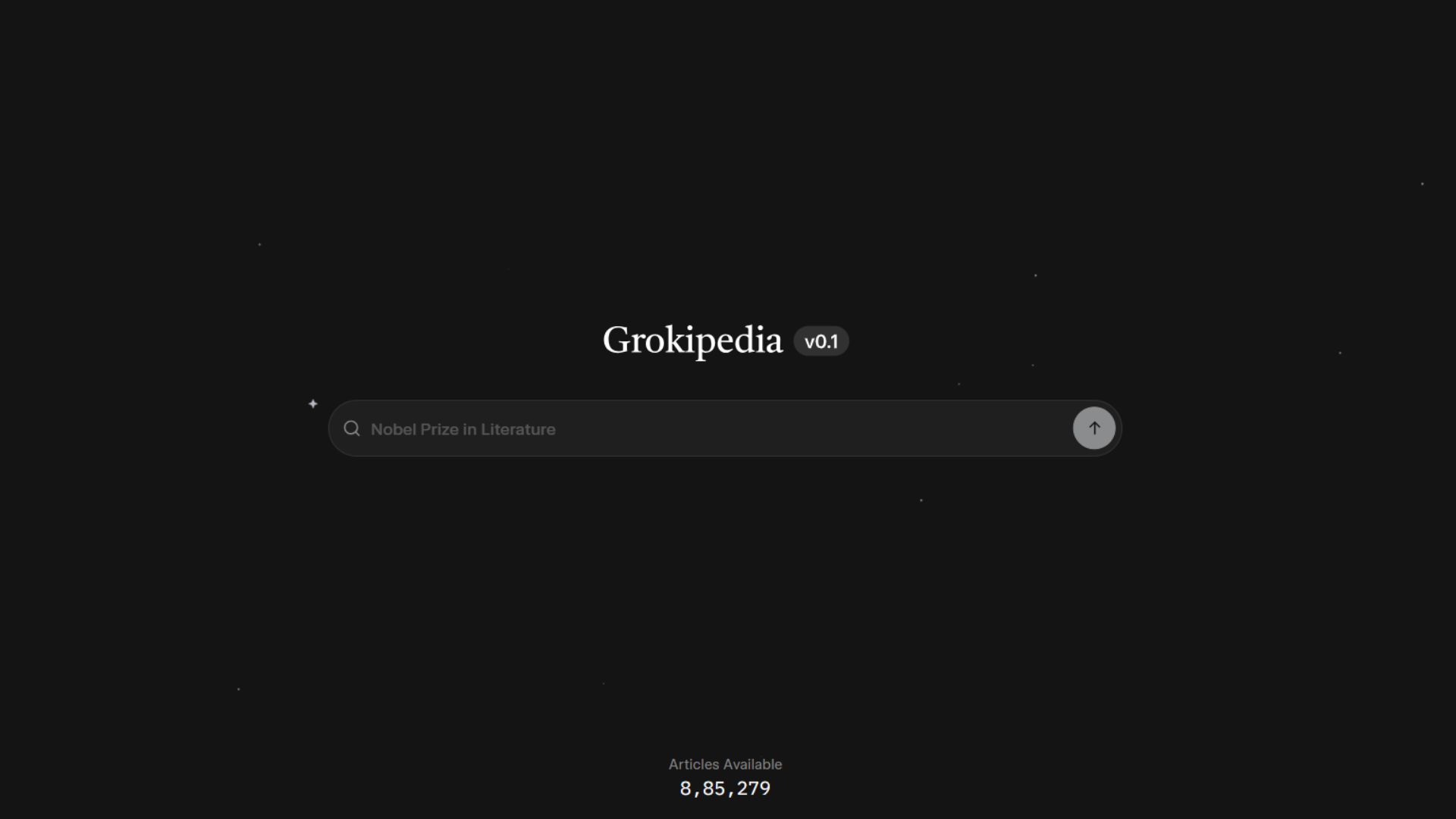- Simplifying AI
- Posts
- 🤖 AI Weekly Recap (Week 44)
🤖 AI Weekly Recap (Week 44)
This week’s top AI news, breakthroughs, and game-changing updates

Good morning, AI enthusiast. AI just had another wild week. Google launched an AI that turns any URL into a full marketing campaign, while 1X Robotics opened pre-orders for Neo, a $20,000 humanoid robot built for home chores and entertainment.
Plus: The most important news and breakthroughs in AI this week.

Google Labs introduced Pomelli, an AI marketing experiment built in collaboration with Google DeepMind. Pomelli analyzes your website to create a “Business DNA” profile, capturing your tone, colors, fonts, and visuals, and then auto-generates on-brand marketing campaigns in minutes.
→ Builds a “Business DNA” by scanning your website and identifying your unique brand identity
→ Generates tailored social media campaign ideas and creative concepts instantly
→ Produces editable, high-quality marketing assets, text, visuals, and ad creatives, aligned with your brand
→ Designed for SMBs to scale content creation without design or marketing expertise
→ Launching as a public beta in the U.S., Canada, Australia, and New Zealand (English only)
🧰 Who is This Useful For:
Small and medium-sized business owners seeking effortless brand consistency
Marketing teams needing scalable campaign generation
Agencies managing multiple client brands with limited resources
Creators and entrepreneurs looking for quick, professional content output
Try it now → https://labs.google.com/pomelli

Canva introduced its Creative Operating System (Creative OS), a unified marketing workspace powered by its new design-focused AI model. The platform now enables teams to plan, create, publish, and analyze campaigns end-to-end, combining design, data, and automation in one place.
→ New AI model trained specifically to understand design complexity and brand consistency
→ Redesigned Video Editor 2.0 with templates, simplified timeline, and AI effects for quick edits
→ Launches Canva Grow, an AI marketing hub that creates, optimizes, and tracks ad performance
→ Adds Email Design for branded campaigns without needing Mailchimp or code
→ Introduces Forms for collecting audience feedback directly integrated into Canva Sheets
🧰 Who is This Useful For:
Marketing teams managing full-funnel campaigns in one workspace
Designers and content creators streamlining creative workflows with AI
Businesses seeking integrated tools for email, ads, and performance tracking
Teams looking to unify design, feedback, and analytics under one ecosystem
Try it Now → https://www.canva.com

Lightricks, the company behind Facetune and LTX Studio, has launched LTX-2, the first complete open-source AI video foundation model capable of generating synchronized 4K video and audio up to 20 seconds long.
→ Combines 4K fidelity, 50 fps motion, and synchronized audio in a single production-ready model
→ Runs efficiently on consumer-grade GPUs, cutting compute costs by up to 50%
→ Includes multi-keyframe conditioning, 3D camera logic, and cinematic precision controls
→ Core components, datasets, and inference tools now available on GitHub (model weights coming soon)
→ API access rolling out via the LTX-2 website with integrations on Fal, Replicate, and ComfyUI
🧰 Who is This Useful For:
Video creators producing high-quality AI-generated content with synchronized sound
Developers building or customizing open-source AI video systems
Studios and content teams streamlining production on consumer hardware
Researchers exploring next-generation audio-visual diffusion models
Try it Now → https://app.ltx.studio/ltx-2-playground

Cursor has launched Cursor 2.0, introducing a multi-agent development interface and its new coding model, Composer, a frontier model built for ultra-fast, agentic coding. The update positions Cursor as a leading AI IDE designed around autonomous code generation and validation.
→ Composer model is 4× faster than comparable models, completing most responses in under 30 seconds
→ Trained with “codebase-wide semantic search” for improved performance on large, complex projects
→ New multi-agent interface focuses on outcomes, letting agents handle implementation details
→ Supports parallel agent runs for multiple solutions, automatically selecting the best output
🧰 Who is This Useful For:
Developers seeking faster, agentic coding workflows
Teams working across large or complex codebases
Engineering managers testing autonomous development systems
Researchers exploring multi-agent collaboration in AI software development
Try it Now → https://cursor.com/download

Elon Musk unveiled Grokipedia, an AI-powered encyclopedia built on xAI’s Grok model, positioned as a “less biased” alternative to Wikipedia. The platform aims to redefine how online knowledge is written and consumed, blending factual summaries with AI-generated opinion.
→ Powered by xAI’s Grok, designed to present information with “truth-seeking” context
→ Early pages show right-leaning bias, particularly around social and political issues
→ Some entries reuse Wikipedia text, while others introduce factual errors or ideological framing
→ Musk’s own page emphasizes his AI vision and downplays criticism
🧰 Who is This Useful For:
AI researchers studying information bias and AI-generated content
Writers, journalists, and fact-checkers analyzing AI’s role in public knowledge
Developers exploring generative models for large-scale content creation
Readers curious about AI-driven alternatives to traditional encyclopedias
Try it Now → https://grokipedia.com/

Norwegian–US robotics startup 1X has opened pre-orders for Neo, its first consumer-ready humanoid robot designed to assist with household tasks and provide entertainment. Deliveries are slated for 2026, marking one of the first real entries of humanoid robots into everyday homes.
→ Performs basic home tasks such as laundry, cleaning, and organizing
→ Features built-in Bluetooth speakers in its chest and pelvis for entertainment
→ Priced at $20,000 upfront or $499/month via subscription (U.S. only at launch)
→ Global rollout expected in 2027 following U.S. release
🧰 Who is This Useful For:
Early adopters exploring humanoid robotics for home or lifestyle use
Tech enthusiasts and researchers studying human–robot interaction
Investors tracking the consumer robotics market and automation trends
Startups developing robotics hardware or AI integration for home environments
Order Now → https://www.1x.tech/order

Hailuo has launched M2, a high-efficiency large language model built for coding and autonomous agent workflows. Available via Ollama (ollama run minimax-m2:cloud), M2 is optimized for long-context reasoning (200K tokens) and real-world developer environments.
→ Ranked #1 globally among open-source models for composite intelligence (Artificial Analysis benchmarks)
→ Excels at multi-file coding, test-validated debugging, and agentic tool use
→ Plans and executes long-horizon toolchains across shell, browser, and retrieval tools
→ Features 230B total parameters (10B active) for high throughput and low latency
→ Designed for IDEs, CI/CD systems, and agentic coding workflows
🧰 Who is This Useful For:
Developers managing AI-driven coding workflows
Researchers exploring agentic reasoning or tool-use models
Startups building autonomous developer agents
Teams optimizing cost-efficient, high-performance AI coding environments
Try it Now → https://agent.minimax.io/

Thanks for making it to the end! I put my heart into every email I send, I hope you are enjoying it. Let me know your thoughts so I can make the next one even better! See you tomorrow.
- Dr. Alvaro Cintas







